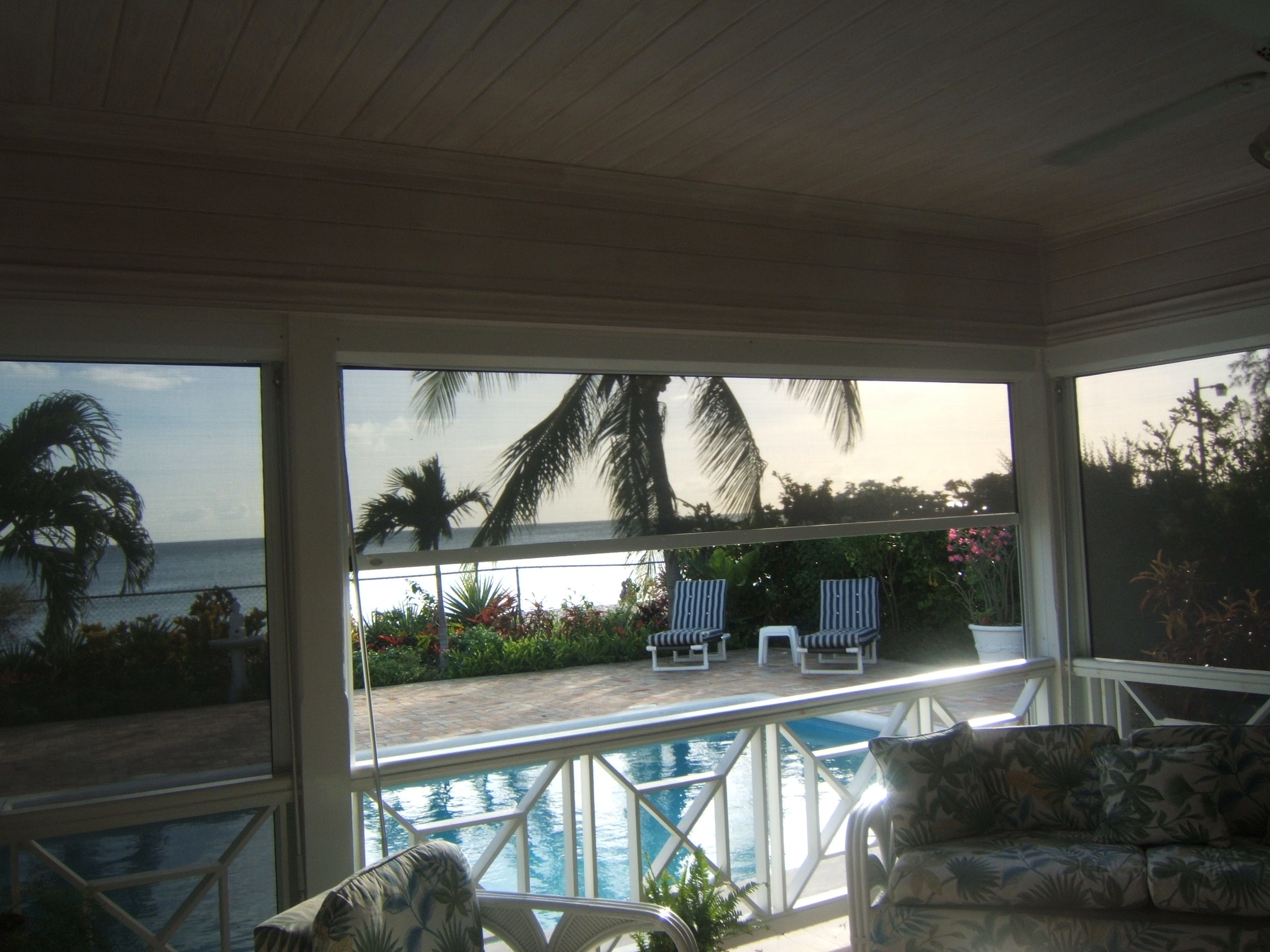Dans la quête d'un confort maximal et d'une excellence esthétique pour votre maison, la question de l'utilisation de stores ou de moustiquaires se posera invariablement. Dans ce guide d'achat, nous allons examiner quelle est la meilleure option et quels sont les avantages et les inconvénients de chacune d'entre elles - les écrans solaires extérieurs ou les stores rétractables.
Il convient tout d'abord d'examiner les similitudes fonctionnelles entre ces deux produits. Il convient de noter que les moustiquaires et les stores sont principalement conçus pour bloquer la chaleur et l'éblouissement du soleil. Cela dit, les deux produits ont une longue durée de vie et sont assez durables, surtout s'ils sont bien entretenus.
Fonctionnalité
Naturellement, les moustiquaires, y compris les brise-vue, n'offrent pas une grande protection des fenêtres contre les débris volants, contrairement aux stores qui peuvent l'offrir dans une certaine mesure lorsqu'ils sont rétractés. Cependant, même si les auvents rétractés n'offrent aucun avantage en matière de sécurité, les écrans Talius habitat, en revanche, peuvent offrir une certaine résistance à un cambrioleur potentiel.
La protection contre les insectes est un autre avantage des moustiquaires par rapport aux auvents, tandis que la réduction et l'absorption du bruit sont minimes dans les deux cas.
Visibilité
Bien que les écrans soient parfois appelés écrans d'intimité, le niveau d'intimité peut varier considérablement en fonction de la densité de l'écran dans lequel vous investissez. Les brise-vue Talius sont disponibles dans des densités de tissu de 5 %, 10 % et 45 %. Lorsqu'ils sont entièrement rétractés, les stores peuvent offrir une intimité totale. Le seul inconvénient est qu'à ce moment-là, la vue est également complètement obstruée, alors que les écrans d'habitat maintiennent la vue sur le monde extérieur en permanence. Les deux produits contribuent à réduire l'éblouissement dû au soleil.
Protection contre la chaleur solaire
Les moustiquaires ont des propriétés isolantes, ce qui peut aider à garder votre maison ou votre terrasse au frais en été. Même lorsqu'ils sont complètement rétractés en position fermée, les stores n'offrent aucune isolation à votre maison ou à votre terrasse. De même, un store fermé protège des précipitations, alors que vous devrez fermer vos fenêtres si vous utilisez des moustiquaires. Les moustiquaires et les stores peuvent vous aider à réduire les coûts liés au fonctionnement de vos unités de climatisation grâce à leur indice de ventilation élevé et à leur protection contre le rayonnement solaire.
Polyvalence
Selon le type de store, le positionnement et la couverture ne sont pas toujours modifiables. Les stores peuvent offrir une excellente protection au plafond, mais lorsque le soleil se déplace, si vous ne pouvez pas déplacer votre store, vous ne bénéficiez plus d'une protection. Il existe des auvents rétractables, dont certains sont dotés de bras abaissables, qui offrent une plus grande souplesse en matière de protection solaire. Les moustiquaires, en particulier lorsqu'elles sont installées sur les fenêtres, offrent une couverture complète lorsque le soleil se déplace tout au long de la journée. Cependant, la plupart des moustiquaires ne sont pas en mesure de couvrir les rayons du soleil. Les moustiquaires et stores rétractables motorisés sont facilement réglables pour répondre à vos besoins spécifiques en matière de couverture.
En outre, selon le type d'auvent, en particulier les auvents qui s'étendent sur les terrasses, les jours de grand vent, ils doivent être rétractés car les vents violents peuvent les endommager. Les moustiquaires Habitat ont non seulement une résistance au vent élevée (selon la taille de la moustiquaire, jusqu'à 220mph), mais elles servent également de coupe-vent grâce à la densité du tissage du tissu.
En conclusion, ces deux produits - les brise-vue et les stores rétractables - présentent de nombreuses similitudes fonctionnelles, mais ils sont différents à bien des égards. Le choix de ce qui convient à votre projet dépend de vos goûts esthétiques et de ce qui est le plus important pour vous.












